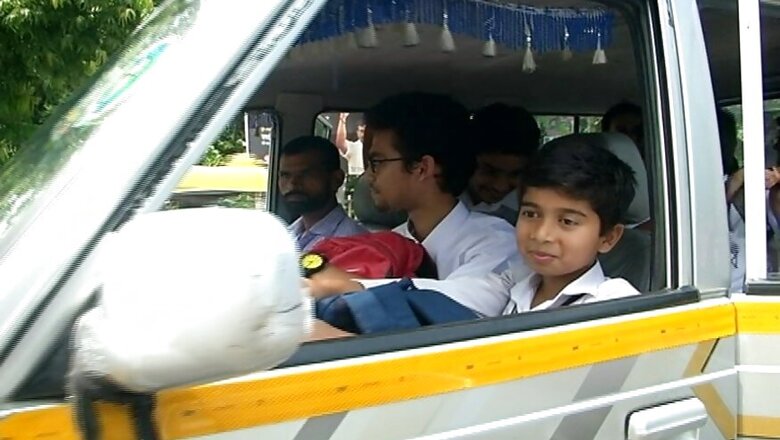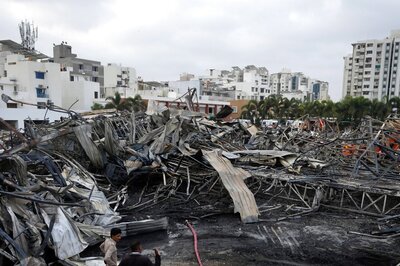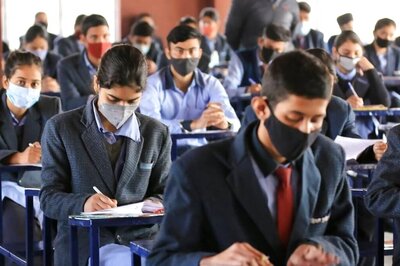
views
Bangalore: A new formula has come into effect in Karnataka by which private schools are supposed to fix school fees of their students. But the formula itself is just one small feature of the government rules that got notified in the state gazette. Most important, perhaps, is the clause that any school violating this fee structure faces a penalty of Rs 10 lakh.
Starting this month, Karnataka has revived a fee regulatory authority to be headed by the deputy commissioners (district collectors) of all districts that will look into violations of fee structures.
“This notification is based on a direction of the High Court. We have specified how fees are to be fixed – we earlier had some norms in 1995 but it hadn’t been updated since then. So we have kept in mind costs of schools and come with this formula, with a clause that penalty up to 10 lakhs can be levied for violators. Besides, education department officials can enter schools and do their own audits when they feel something is amiss,” said Karnataka Education Minister Tanveer Sait in an interview with CNN News18.
The demand for a fee regulatory commission – on the lines of the Telecom Regulatory Authority of India (TRAI) or the electricity (tariff) regulatory commissions – has been there for a few years now, with many parents feeling the pinch of exorbitant school-fee hikes in private schools.
The current notification says that fees must be fixed based on costs of staff salaries – teaching and non-teaching staff. For private schools in gram panchayat or town panchayat areas, an additional 50 per cent can be added for maintenance costs. In schools in city municipalities and corporation jurisdictions, this is up to 70 per cent. And schools of Bengaluru are allowed to charge an additional 100 per cent of their total salary cost as maintenance cost. This cost then must be divided by number of students.
A positive for teachers in these schools is that the managements have been asked to add on PF, ESI, medical allowance and pension fund allowances towards their salary cost – that would certainly help out teachers in private schools who are employed on ‘contract’ and thus have felt exploited.
Not all schools are happy though. School management associations are measuring their responses, still trying to work out the impact of this on their finances, wondering if there are different parameters for schools that are housed in land allotted by the government or those that are rented.
Sait says they are working out ways to restrict fees collected under other heads – like construction funds, development funds or a library cess.
“We have seen many schools charging such things and we will bring in more guidelines based on court directions. Now we want schools to follow this structure. The audit will show everything -- if a teacher is paid less salary, they will raise an alarm, if fee hikes are high, parents will raise an alarm. This is a system put in place to ensure all teachers and parents are aware of what the management is collecting and what is the annual turnover,” he says.
Interestingly, as the notification was getting readied this week, a parents association was getting set to file another PIL in the High Court.
Vinodh Rajaraman, a parent from south Bengaluru, had written to the State Government and the Ministry of Human Resources Department about how schools affiliated to the Central Boards like ICSE and CBSE have been escalating fees to unreal amounts over the last few years. In a passionate letter, he had talked of how even well-to-do families were finding it difficult to foot the school bill the beginning of every year.
With the files not really moving in the government, he filed a PIL this week to amend the Karnataka education act to include Central schools in the ambit of such fee fixing formulae.
“It’s not about me or my school, this is a pain inflicted on every parent in India about a system that has a lot of flaws. The CBSE bye-laws are not very clear when it says fees should be commensurate with the facilities you provide. That doesn’t mean anything. We are not asking them to fix a particular fee, but at least tell us how you are fixing it, and make it transparent,” Rajaraman told CNN News18 in an interview.
Since January this year, he has been collecting data from parents of nearly a dozen schools on fee structures – all of which has been submitted to the High Court in his affidavit. Fees could range from upto Rs 8 lakh per year in ‘international’ schools, to over a lakh a year in schools in ‘IT-areas.’
“Being in an IT area like Whitefield is a problem I guess. There has been an average 15 to 20 per cent increase, when that is not in line with inflationary trends otherwise… When I write to the state government, they say these schools don’t come under our control. When I write to Union government, they say education is a state subject. So I don’t know who is supposed to handle it,” says Rajaraman, whose plea has been admitted in the High Court now.
Rajaraman also made a plea to streamline the system.
The PIL could well take a year or more, he’s sure, but like how some states have a cap on how much multiplexes can charge for popcorn, he feels there should be some cap on how much schools can charge for providing education.




















Comments
0 comment